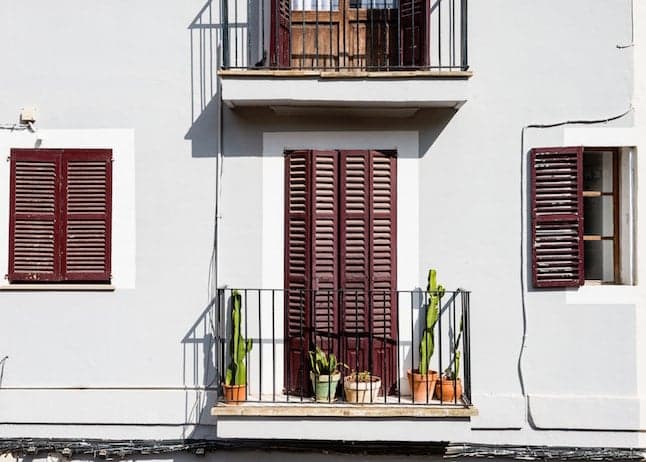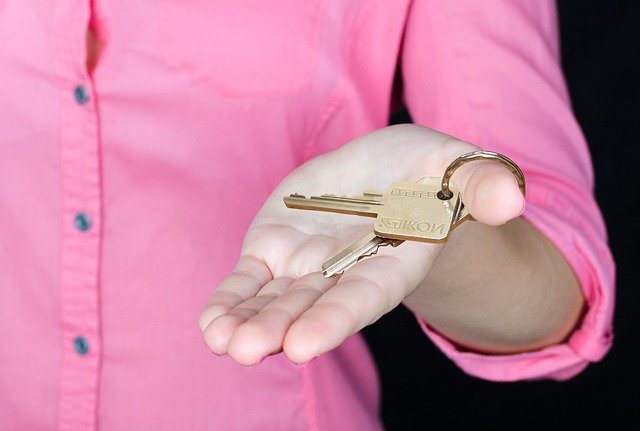Property in Spain: What landlords need to know about renting out a property

If you buy a property in Spain for investment purposes or for a long-term retirement plan, you may be thinking about renting it out in the meantime. As a landlord in Spain, there are several things you should be aware of.
Decide whether you want to rent your property out yourself or use a property management company
Your first decision as a landlord is to decide if you want to manage the property yourself or if you want a management company to do it for you. There are pros and cons to both. While management companies are obviously more expensive, if you live outside of Spain or in a different city to your property, then it’s best to get a local company to help you manage it. They will also be aware of all your legal requirements.
Make sure you’re aware of all the legal obligations if you want to rent your property out to tourists
In this article, we will mainly focus on renting your property out long-term to tenants, as there a whole different set of rules if you want to rent your property out short-term to tourists. In many Spanish regions, you will be required to get a tourist licence for your property in order to do this. Contact your local town hall to see if this is a requirement in your area and how to go about applying for one.
Make sure to ask for a deposit
When renting out long term, you are allowed to ask for one month's rent as a down payment in case of any damages to the property. Technically you are supposed to give this deposit to a third party for safekeeping such as the Consejería de la Vivienda in your local area.
The initial rental period is five years
In March 2019, the Ley de Arrendamientos Urbanos (LAU) changed the property laws in Spain so that the rental period was extended to five years instead of three, as it was prior to 2013. During this time, only the tenant is allowed to cancel the contract. If your tenant doesn’t give you notice within 30 days of the contract renewal date, it will automatically be renewed for another five years.
If you need the property back for whatever reason, you can only do this after one year
According to the LAU, if you need your property back, for example, to let immediate family live there, then you can only do this after one year of tenancy and must give your tenants two months’ notice.

What you need to know about being a landlord in Spain. Image: Tumisu / Pixabay
You are allowed to evict a tenant who is behind on rent
According to Balcells Group legal firm, if a tenant is behind on rent, you should first try to sort the situation amicably, but if you still aren’t getting paid, you can make an application to evict your tenant for non-payment. A judge will make a decision based on your application and if they rule in your favour, the tenant must leave the property, as well as paying the outstanding amount of rent.
You are only able to change the rental price of your property if previously agreed upon
The LAU states that you are only able to revise the rental price if this has previously been established in the rental contract with the tenant. However, if you have made drastic improvements to the property during this time, which are not just repairs and maintenance, you are allowed to increase the rent after the work has been completed, providing you have informed the tenant in writing. This cannot be an increase of more than 20 percent.
Be aware of tax obligations
Whether you’re a resident or a non-resident in Spain, if you own a property here and rent it out, you are liable to pay tax on the rent you receive. And be aware that if you’re a non-resident and decide not to rent your property out, but only use it yourself for holidays, you will still be liable to pay non-residents tax on the property. If you’re an EU resident or resident of Norway or Iceland, you will pay a tax base rate of 19 percent, all others will pay a tax base rate of 24 percent. Make sure you seek legal advice from a professional to ensure you are paying the correct amount of tax and declaring it accordingly.
Make sure you are registered on the Property Registry
When you buy your house in Spain, you must ensure that you are registered on the Property or Land Registry, which lists you as the owner. This should be done at the moment of purchasing the property, however, if you're planning on renting it out, you may want to double-check this. This is because in order to avoid rental scams, many tenants will look this up themselves to check that you are the true owner.
You are responsible for paying the community fees and IBI tax
In Spain, the landlord is automatically responsible for paying any community or building fees, as well as the Impuesto Sobre Bienes Inmuebles, better known as IBI tax. The IBI is due once per year and is a type of council tax, which paid to your local town hall. If however, you agree with your tenant in advance that they will pay these and add them into the contract, then you are able to pass the responsibility on to them.
Comments
See Also
Decide whether you want to rent your property out yourself or use a property management company
Your first decision as a landlord is to decide if you want to manage the property yourself or if you want a management company to do it for you. There are pros and cons to both. While management companies are obviously more expensive, if you live outside of Spain or in a different city to your property, then it’s best to get a local company to help you manage it. They will also be aware of all your legal requirements.
Make sure you’re aware of all the legal obligations if you want to rent your property out to tourists
In this article, we will mainly focus on renting your property out long-term to tenants, as there a whole different set of rules if you want to rent your property out short-term to tourists. In many Spanish regions, you will be required to get a tourist licence for your property in order to do this. Contact your local town hall to see if this is a requirement in your area and how to go about applying for one.
Make sure to ask for a deposit
When renting out long term, you are allowed to ask for one month's rent as a down payment in case of any damages to the property. Technically you are supposed to give this deposit to a third party for safekeeping such as the Consejería de la Vivienda in your local area.
The initial rental period is five years
In March 2019, the Ley de Arrendamientos Urbanos (LAU) changed the property laws in Spain so that the rental period was extended to five years instead of three, as it was prior to 2013. During this time, only the tenant is allowed to cancel the contract. If your tenant doesn’t give you notice within 30 days of the contract renewal date, it will automatically be renewed for another five years.
If you need the property back for whatever reason, you can only do this after one year
According to the LAU, if you need your property back, for example, to let immediate family live there, then you can only do this after one year of tenancy and must give your tenants two months’ notice.

You are allowed to evict a tenant who is behind on rent
According to Balcells Group legal firm, if a tenant is behind on rent, you should first try to sort the situation amicably, but if you still aren’t getting paid, you can make an application to evict your tenant for non-payment. A judge will make a decision based on your application and if they rule in your favour, the tenant must leave the property, as well as paying the outstanding amount of rent.
You are only able to change the rental price of your property if previously agreed upon
The LAU states that you are only able to revise the rental price if this has previously been established in the rental contract with the tenant. However, if you have made drastic improvements to the property during this time, which are not just repairs and maintenance, you are allowed to increase the rent after the work has been completed, providing you have informed the tenant in writing. This cannot be an increase of more than 20 percent.
Be aware of tax obligations
Whether you’re a resident or a non-resident in Spain, if you own a property here and rent it out, you are liable to pay tax on the rent you receive. And be aware that if you’re a non-resident and decide not to rent your property out, but only use it yourself for holidays, you will still be liable to pay non-residents tax on the property. If you’re an EU resident or resident of Norway or Iceland, you will pay a tax base rate of 19 percent, all others will pay a tax base rate of 24 percent. Make sure you seek legal advice from a professional to ensure you are paying the correct amount of tax and declaring it accordingly.
Make sure you are registered on the Property Registry
When you buy your house in Spain, you must ensure that you are registered on the Property or Land Registry, which lists you as the owner. This should be done at the moment of purchasing the property, however, if you're planning on renting it out, you may want to double-check this. This is because in order to avoid rental scams, many tenants will look this up themselves to check that you are the true owner.
You are responsible for paying the community fees and IBI tax
In Spain, the landlord is automatically responsible for paying any community or building fees, as well as the Impuesto Sobre Bienes Inmuebles, better known as IBI tax. The IBI is due once per year and is a type of council tax, which paid to your local town hall. If however, you agree with your tenant in advance that they will pay these and add them into the contract, then you are able to pass the responsibility on to them.
Join the conversation in our comments section below. Share your own views and experience and if you have a question or suggestion for our journalists then email us at [email protected].
Please keep comments civil, constructive and on topic – and make sure to read our terms of use before getting involved.
Please log in here to leave a comment.